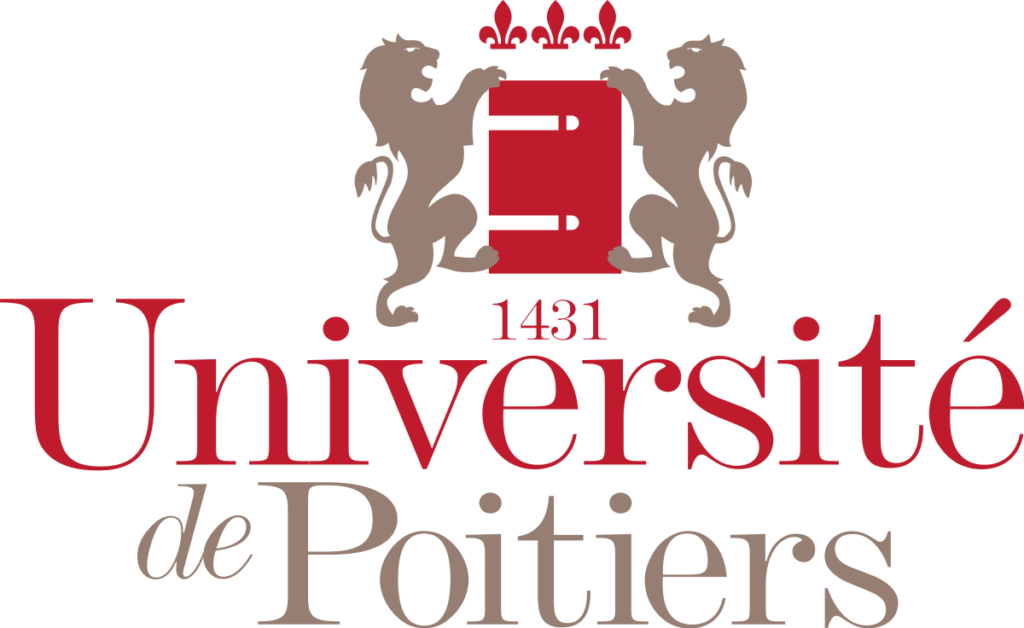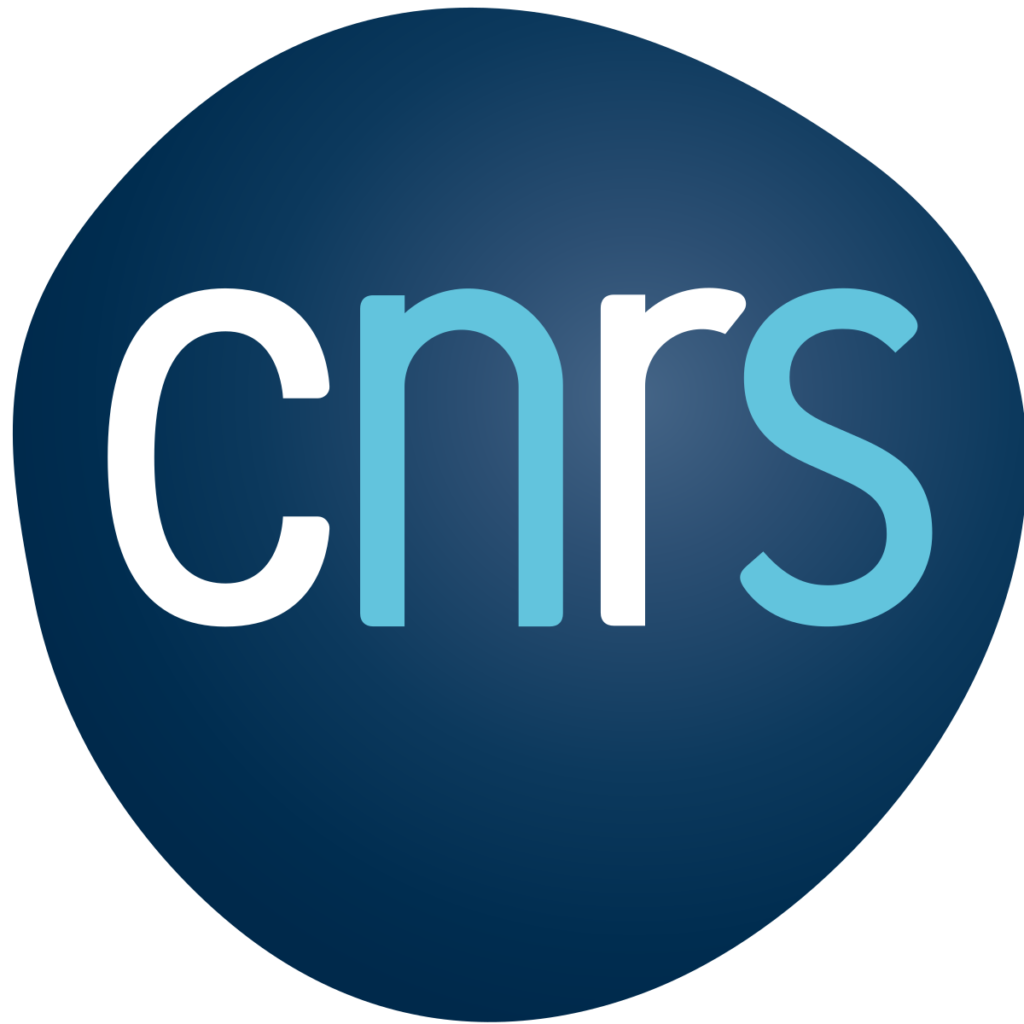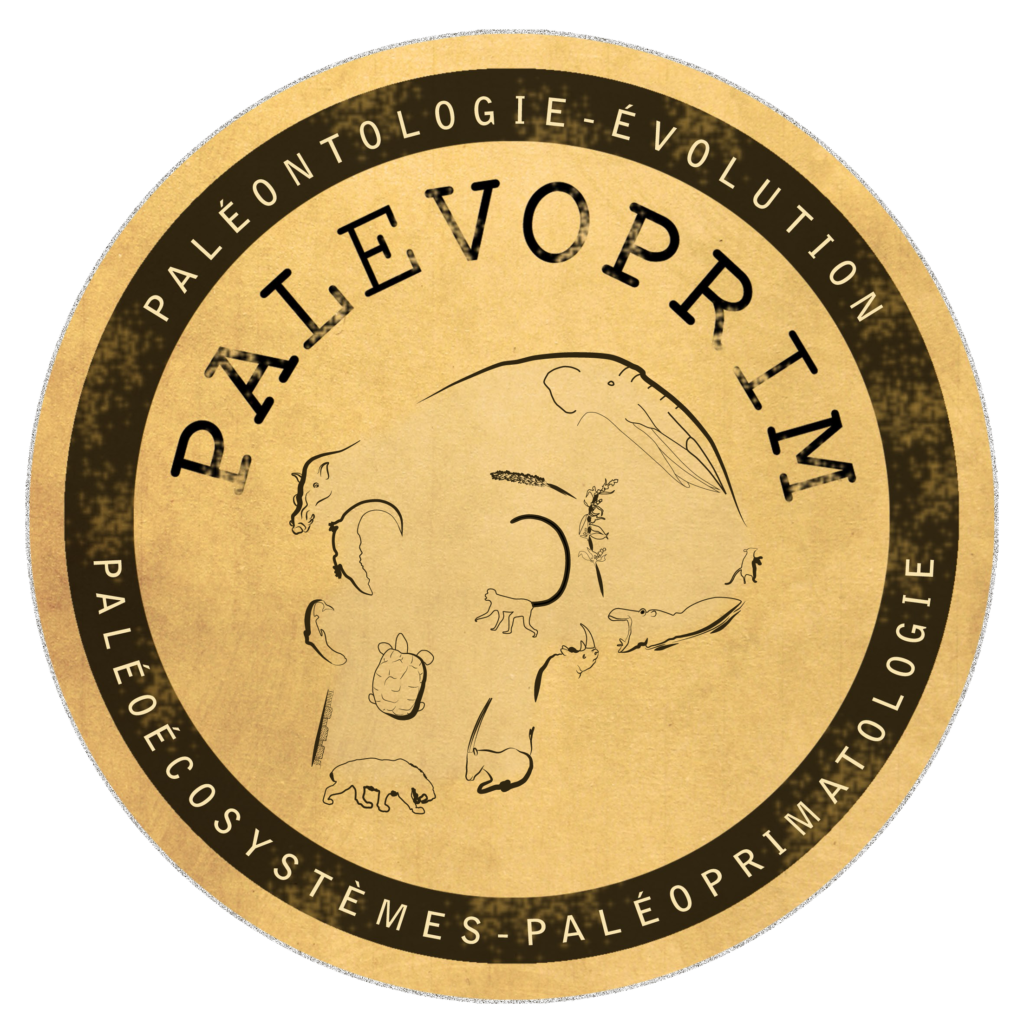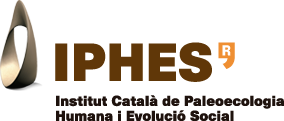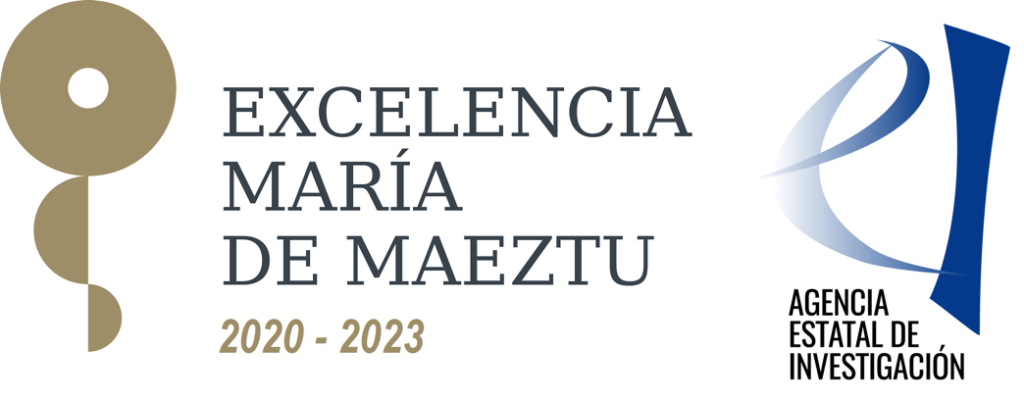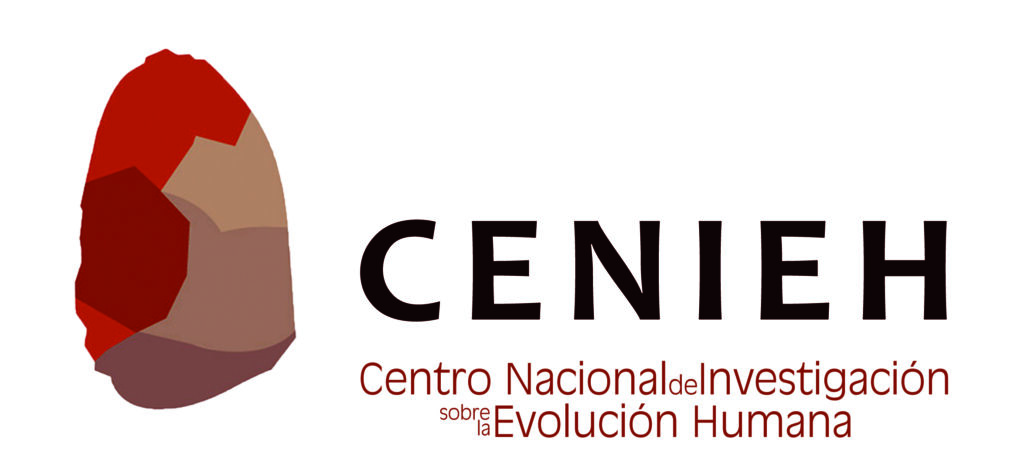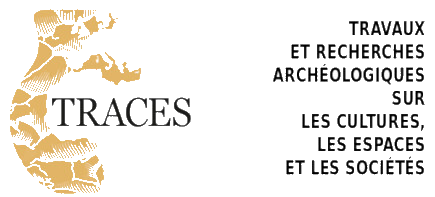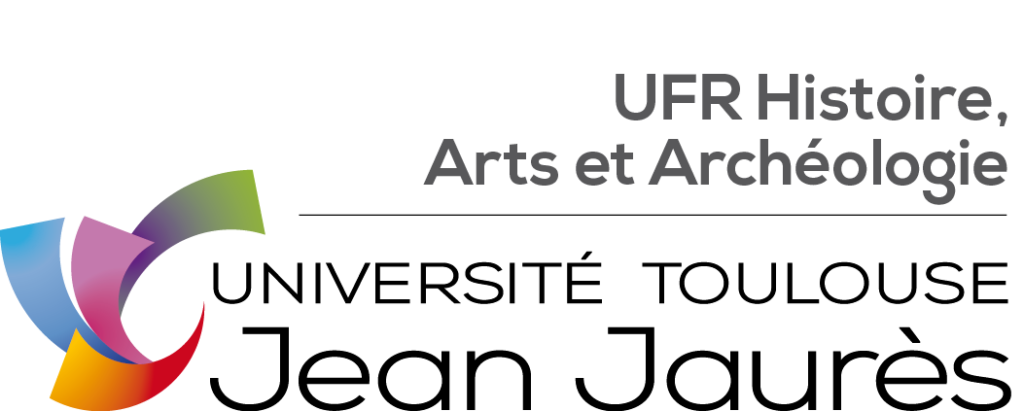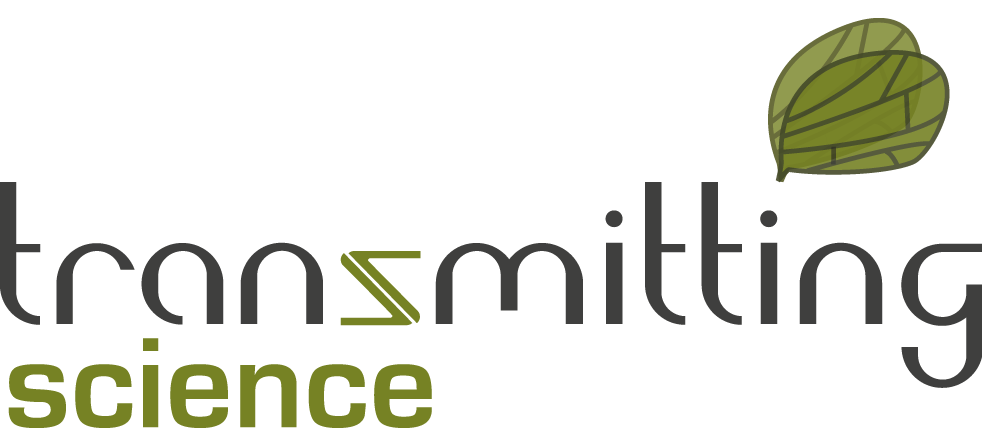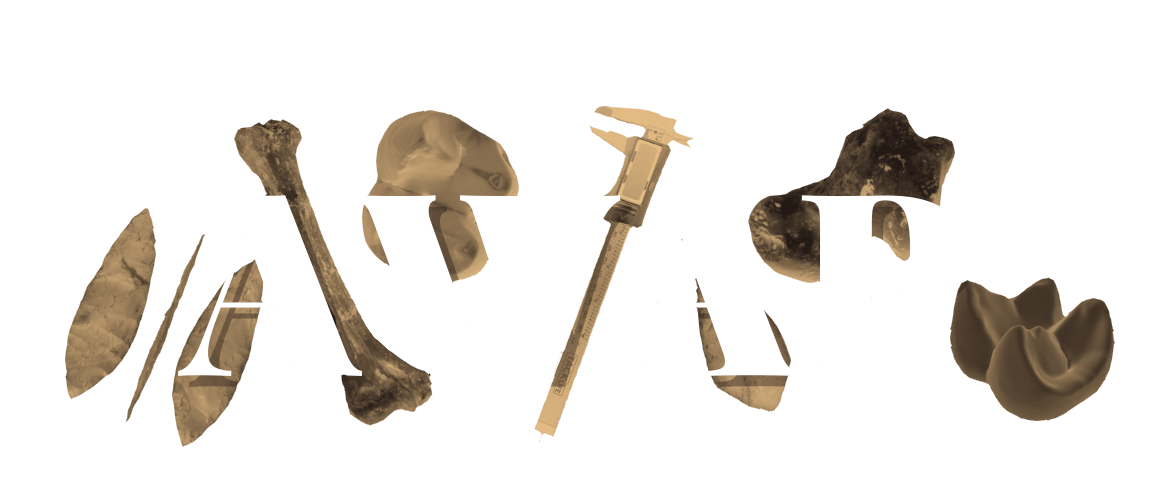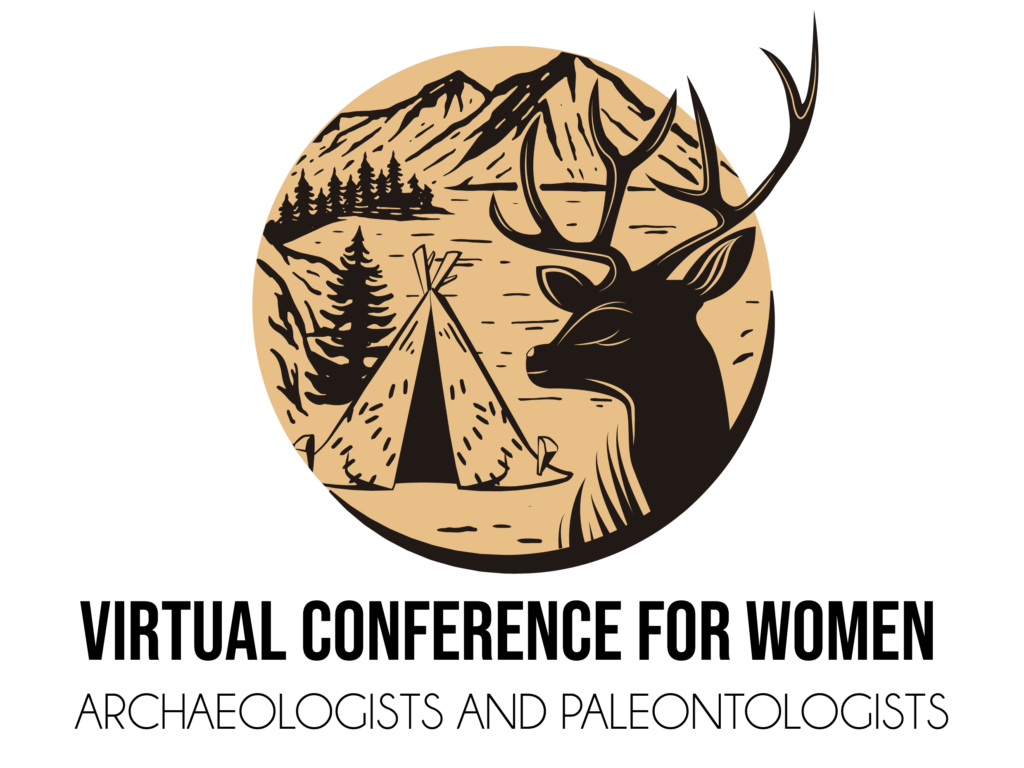

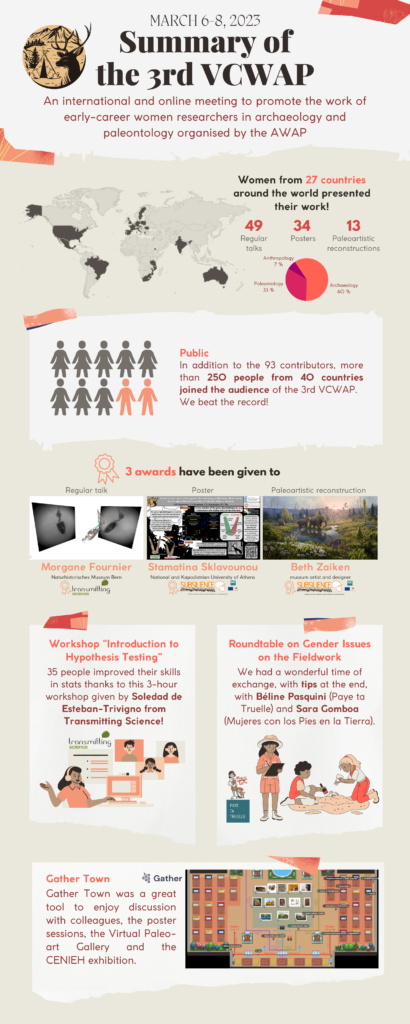
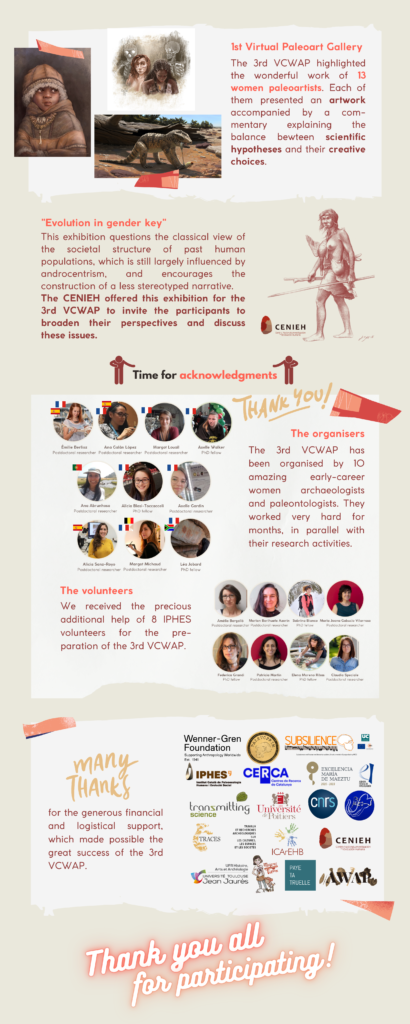
The number of women hired and promoted in science is still lower than the number of men. Recent research (Ross et al. 2022) suggests that there is a significant gap between the number of women-authored works produced in science and those produced by men, which has clear implications for retention and promotion of women. As a result, women publish and patent less than men and the evidence indicates that women are not less productive, but rather undervalued. Furthermore, it is less likely that women receive mentorship from eminent faculty, are published in journals with fewer citations, have fewer collaborators, and are underrepresented among journal reviewers and editors (Lerman et al. 2022).
After the success of the two first editions in 2021 and 2022, the VCWAP is back in 2023 to offer young/early-career women researchers (not holding a permanent position from master to postdoctoral stages) in Archaeology and Paleontology, an opportunity to gain visibility by presenting recent developments in their research and to reflect on the gender-related issues in these disciplines.
In Archaeology and Paleontology, reexamination of ancient assemblages, recent discoveries, and innovative methodologies allow questioning and updating old paradigms. This scientific event is also an opportunity to exchange ideas and to combine approaches from the two disciplines.
The third edition of VCWAP will take place from 6 to 8 March 2023, by videoconference, on the occasion of the International Women’s Rights Day.
We especially encourage archaeologists and paleontologists (and those from related disciplines), who have permanent positions, to attend our conference, since we wish to turn it into a space that not only highlights the work of those without a stable position, but also provides new opportunities and encourages the development of new contact networks, that are so important in both research and academic fields.
Find out more in our Short Programme and our Abstract Book.
Proposal for contributions
Find out more in our Call for Abstract.
Abstract submissions are now closed.
__________________________
For young/early-career women (trans and cis.) researchers in Archaeology, Paleontology and related disciplines, spanning from the Paleozoic to Historical periods.
Communications should be related to the study of ancient life forms (plants, fungis, invertebrates, vertebrates including humans…), their relationships, as well as to the study of raw or craft materials, paleoenvironments, paleoclimates, taphonomy, development of methodologies/ approaches (including experimentations, conservation and preparation techniques) and gender archaeology.
__________________________
Remember that the VCWAP audience gathers a wide range of specialists (paleontologists, archaeologists, anthropologists, etc.). For this reason, communications must be understandable by a wide audience. Abstracts (1800 characters max. including spaces) must be written in English, be clear and organized, and clearly summarize the problematic, the purpose of the study, the methods used, and the main results in a synthetic way.
Although the speakers must be early-career women researchers, all co-authors must be included in the authors list (no matter their gender).
Your contribution could take one of the following formats:
-
- Regular talk: 15 minutes, ideally including 10 minutes of presentation followed by 5 minutes of questions and answers. In order to give even more visibility to your work, we are considering the possibility of recording the presentations of the speakers who wish to do so and putting them online.
-
- Poster: A poster session will take place on GatherTown. Further details about dimensions will be provided in January.
Although live talks are preferred, if you have any internet issues or special conditions that make it impossible for you to make a live presentation, you can send us your recorded presentation and then answer questions and participate on Discord. For those whose time zone difference is important, we will try to adapt the timing of your talk to the local time in the country where you live.
- For women (trans and cis.) paleoartists
If you are interested in exhibiting your work in the Virtual Paleoart Gallery of the VCWAP 2023, please submit a short description of your paleoartistic reconstruction piece via the registration and abstract submission form (1300 characters max. including spaces).
You can present your work in the form of a single picture or a composite image with text (for example, to show the stages of reconstruction). It is not necessary for the image to be original. A short commentary (800-1800 characters) will have to be provided with the image, explaining the scientific assumptions, the artistic choices, the references and/or specimens on which the reconstruction is based is necessary to make this reconstruction informative and provoke further discussion. During the Paleoart Session, if you wish, you can present your work to the participants at the Paleoart Gallery.
Each speaker/paleoartist will also have a room on Discord to deepen the exchanges with the public and to share content.
3rd VCWAP prizes
- The best Regular talk will be rewarded with a free course, of the laureate’s choice, by our sponsor Transmitting Science. It can either be an online or in-person course (in case of the in-person course, registration fee is covered but travel expenses, accommodation and meal expenses are the responsibility of the participant).
- The best Poster will be rewarded with a prize of €100.
- Attendees will vote for their favorite paleoart piece. This paleoartistic reconstruction and her creator will be promoted on the AWAP website and social media accounts. If the paleoartist so desires, her reconstruction can cover both the Abstract Book and the Program of the VCWAP 2024. To this will be added a reward of 100€..
If you would like to attend this event as an audience, please fill out this form:
Registration deadline: 03/03/2023 at 23:59 (GMT+1).
You will receive the connection link on 04/03/2023.
Registration is free.
After the conference, certificates of attendance are available upon request.
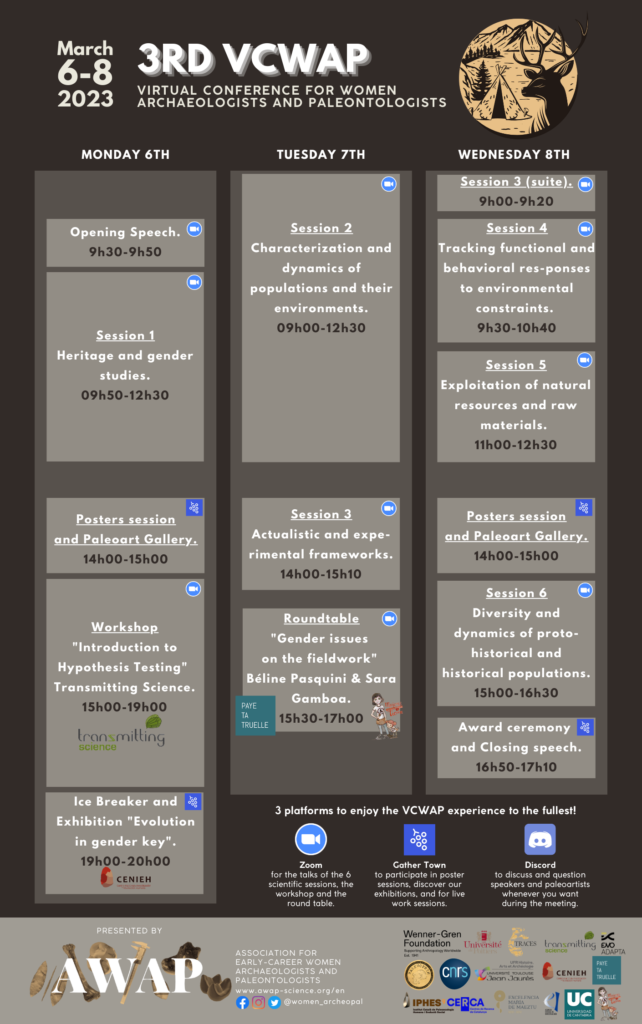
Organising committee
Ana Abrunhosa (Ph.D)- CENIEH – Centro Nacional de Investigación sobre la Evolución Humana (Spain) and ICArEHB – Interdisciplinary Center for Archaeology and Evolution of Human Behaviour FCHS – Universidade do Algarve, Campus de Gambelas, Faro, Portugal
Emilie Berlioz (Ph.D)- MSCA fellow, EvoAdapta, department of Historical Sciences, University of Cantabria, Santander, Spain
Ana Belén Galán López (Ph.D)-TRACES UMR 5608, CNRS-University Toulouse 2 Jean Jaurès, Toulouse, France
Axelle Gardin (Ph.D)-PALEVOPRIM UMR 7262 CNRS -University of Poitiers, Poitiers, France
Léa Jobard (Ph.D Fellow)-TRACES UMR 5608, CNRS-University Toulouse 2 Jean Jaurès, Toulouse France & IFAS Research (USR 3336) Johannesburg, South Africa
Margot Louail (Ph.D)-PALEVOPRIM UMR 7262 CNRS – University of Poitiers, Poitiers, France
Margot Michaud (Ph.D)-Department of African Zoology, Royal Museum for Central Africa, Tervuren, Belgium
Alicia Sanz Royo (Ph.D) – EvoAdapta, department of Historical Sciences, University of Cantabria, Santander, Spain
Axelle Walker (Ph.D Fellow)-PALEVOPRIM UMR 7262 CNRS -University of Poitiers, Poitiers, France
The Association for early-career Women Archaeologists and Paleontologists (AWAP) strives to ensure everyone a welcoming, respectful, safe and collaborative conference experience, regardless of their gender identity and expression, sexual orientation, disability, neurodiversity, physical appearance, body size, ethnicity, nationality, race, age, or religion. To ensure that all participants at the annual Virtual Conference for Women Archaeologists and Paleontologists (VCWAP) understand what behaviour is expected, and what behaviour will not be tolerated, the AWAP has established this Code of Conduct.
EXPECTED BEHAVIOUR
The AWAP expects that participants at the VCWAP will:
-Be considerate and respectful to all conference participants. Avoid demeaning, discriminatory, or harassing behaviour, materials, and speech.
-Be willing to speak up if you observe anything that is inconsistent with this Code of Conduct at the VCWAP. Please contact a member of the VCWAP conference team as soon as possible if you feel harassed or uncomfortable, notice someone else being harassed, or have any other concerns.
UNACCEPTABLE BEHAVIOUR
The AWAP will not tolerate unacceptable behaviour from any participant. Unacceptable behaviour includes, but is not limited to:
-Intimidating, harassing, abusive, discriminatory, derogatory, or demeaning speech, materials, or conduct by any participants of the conference.
-Violence, threats of violence, or violent language directed against another person.
-Sexist, racist, homophobic, transphobic, or otherwise discriminatory jokes and language.
-Personal insults, particularly those related to gender, sexual orientation, race, religion, or disability.
-Inappropriate photography or recording (especially for use on social media, without the prior permission of the individuals or owners of the content therein).
CONSEQUENCES OF UNACCEPTABLE BEHAVIOUR
Unacceptable behaviour will not be tolerated. It is expected that anyone asked to stop unacceptable behaviour will comply immediately. Participants who violate the AWAP’s code of conduct may be expelled from the conference if they engage in unacceptable behaviour.
UNACCEPTABLE BEHAVIOR: WHAT TO DO
Please notify a member of the VCWAP conference team if you observe / are subject to unacceptable behaviour, or have any other concerns, by sending us an email (vcwap@awap-science.org) or by sending us a private message directly through the Zoom chat. The VCWAP Team will be available to assist anyone those experiencing unacceptable behaviour to feel safe during the conference. Reports will remain completely confidential.
Event organised by
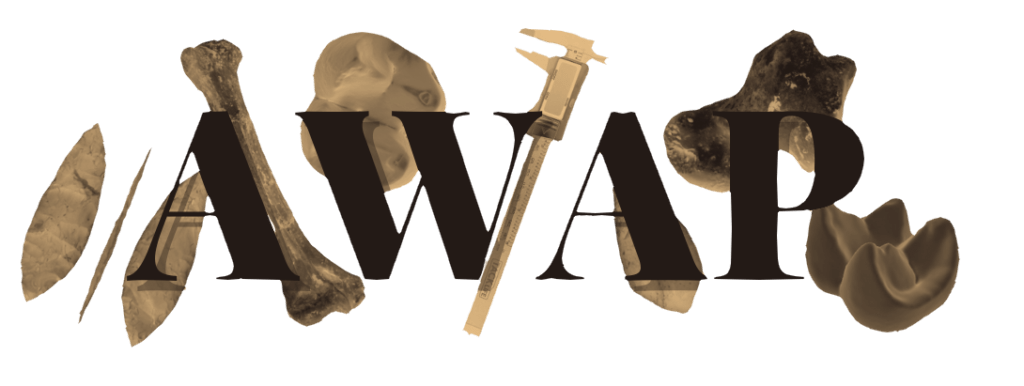
Our sponsors and supports

